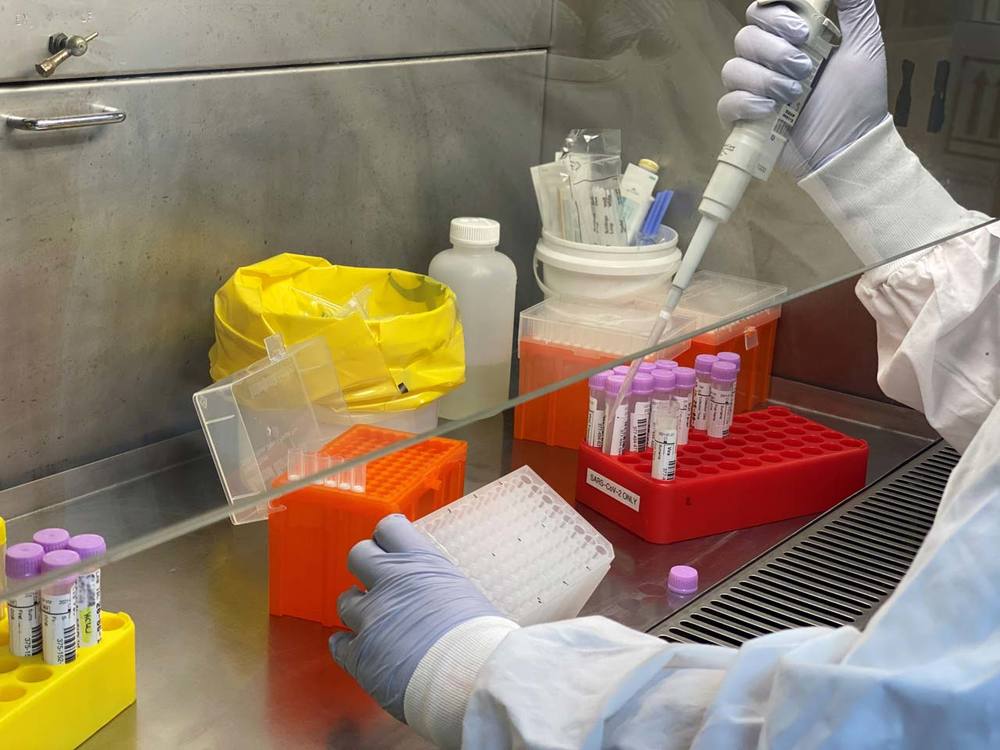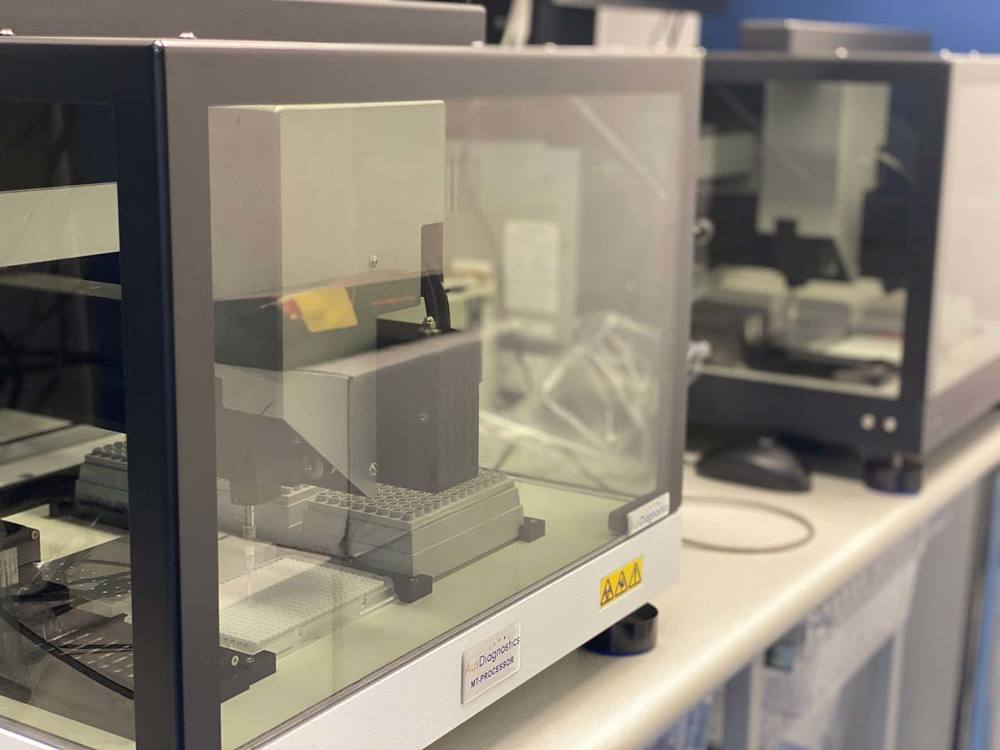Lismore's dedicated lab hits 20,000 Covid-19 test milestone
Liina Flynn
22 July 2020, 10:59 PM
 Laboratory technician loading COVID-19 swab samples into sample tray.
Laboratory technician loading COVID-19 swab samples into sample tray.With 20,000 covid-19 tests under his belt, Lismore laboratory microbiology manager Glenn Hawkins has hit a milestone.
As the team manager at NSW Health Pathology’s only dedicated virus testing lab in Lismore, he has seen his team go from conducting 300 to 400 diagnostic Covid-19 tests per day.
With the Queensland/NSW border reopening, the team are preparing for an increase in the number of test requests across the Northern NSW region. The patient samples are collected at NSW public hospitals and mobile clinics from Grafton, up to Tweed Heads and across to the coast.
Glenn said having the testing done locally means samples do not need to be transported elsewhere for testing and means greater testing capacity and faster turnaround times for our community.
“Our laboratories diagnose Covid-19 cases using the PCR (polymerase chain reaction) test, which is the main type of test used around the world to detect Covid-19,” Glenn said. “It works by detecting the genetic material of the virus in a patient’s sample.

How does the test work?
Glenn said the testing process begins with a sample arriving in the lab and it is given a number to track the process through to completion. When it comes to safety, Glenn said the samples are only opened in a safety cabinet and all staff wear gloves and gowns.
“We take portion of liquid in the swab into cartridge to extract and purify the DNA," he said. "It takes about an hour. Then it goes into another instrument where we amplify the DNA before taking it through a third process where we pick out certain genes to detect the virus.”
“This has become the standard test for detecting the virus - we used to try and grow them and it took one or two weeks.
“Now, we can do a quick test called a rapid test which is ready in a couple of hours - but we can only do them one at a time.

Ballina Jetstar flight Covid-19 test
“In the recent case of the girl who arrived on the Ballina Jetstar flight – she went through the standard test first then when it came up positive, we did a rapid test to confirm it.
“The great thing about testing locally is that we can test lots of locals quickly and contain an outbreak if one happens.”
Glenn said the lab became a dedicated testing lab in 2007 when there was an influenza outbreak, so the capability to move into dedicated testing for Covid-19 was already here in the local area.
Lismore is part of NSW Health Pathology’s network of 12 specialist laboratories across the state conducting COVID-19 diagnostic testing; around half of which are in regional areas.
“Over the whole network pathology network in NSW, we have done over one million tests,” he said.
Why is this a great thing?
The availability of local Covid-19 testing in regional laboratories deliver greater testing capacity and faster turnaround times. This enables early diagnosis and management of cases, which is vital to curb the spread of the virus.
NSW Health Pathology’s Lismore laboratory is also set up for rapid PCR testing, to be used for high-risk, high-priority cases where an urgent diagnosis is needed. These include the elderly, acutely unwell patients or those with pre-existing or chronic health conditions.
Rapid testing is now available at 37 NSW Health Pathology labs across the state. NSW Health Pathology reviews its statewide testing network daily to ensure reliable, timely testing is available where it is needed.
Highest testing rates
NSW has one of the highest COVID-19 testing rates in the world. A total of 1,218,155 tests have been done since testing began, including 15,903 over the past 24 hours.
NSW Health Pathology has been working hard since the outset of the pandemic, conducting almost 60% of these tests and averaging 7,500 a day.
NSW Health Pathology has also now received more than 350,000 registrations for their pioneering SMS Results Service that has halved the average waiting time for negative results.
Get tested
“As restrictions ease gradually, it is crucial to come forward for testing, even if you only have minor symptoms, to ensure we keep community transmission at bay,” Mr Hawkins said.
“Anyone with flu-like symptoms, no matter how mild, should get tested. Common symptoms include cough, sore or scratch throat, shortness of breath or fever.”


